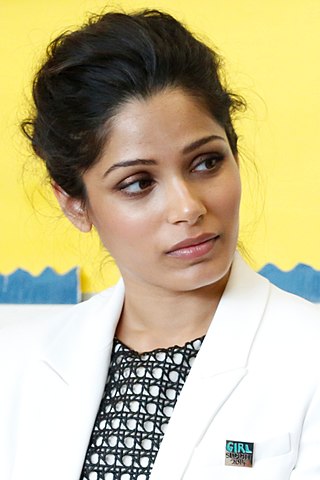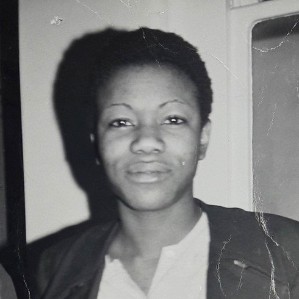
Kwame Kwei-Armah is a British actor, playwright, director and broadcaster. In 2005, Kwei-Armah became the second black Briton to have a play staged in the West End of London when his award-winning piece Elmina's Kitchen transferred to the Garrick Theatre. He was the first black Briton to head a major British national theater, when he took the directorship of the Young Vic in 2018. Kwei-Armah was appointed Officer of the Order of the British Empire (OBE) in the 2012 Birthday Honours for services to drama.

Idrissa Akuna Elba is an English actor, rapper, singer, DJ and kick-boxer. He has received a Golden Globe Award as well as nominations for three BAFTA Awards and six Emmy Awards. He was named in the Time 100 list of the Most Influential People in the World in 2016. His films have grossed over $9.8 billion at the global box office, making him one of the top 20 highest-grossing actors.

John Ridley IV is an American screenwriter, television director, novelist, and showrunner, known for 12 Years a Slave, for which he won an Academy Award for Best Adapted Screenplay. He is also the creator and showrunner of the anthology series American Crime. In 2017 he directed the documentary film Let It Fall: Los Angeles 1982–1992.

Leighton Rhett Radford "Darcus" Howe was a British broadcaster, writer and racial justice campaigner. Originally from Trinidad, Howe arrived in England as a teenager in 1961, intending to study law and settling in London. There he joined the British Black Panthers, a group named in sympathy with the US Black Panther Party.

Farrukh Dhondy is an Indian-born British Parsi writer, playwright, screenwriter and left-wing activist who resides in the United Kingdom.

No Problem! is a Channel 4 sitcom that ran from 7 January 1983 to 1 June 1985, created by the Black Theatre Co-operative. The show was written by Farrukh Dhondy and Mustapha Matura, from the Black Theatre Co-operative. Twenty-seven episodes were broadcast of the programme, which focused on a family of Jamaican heritage, the Powells, living in a council house in Willesden Green, London. It was voted Britain's 100th best sitcom in a poll carried out by the BBC.
Tandoori Nights is a television sitcom that was broadcast on Channel 4 between 4 July 1985 and 13 November 1987. It consisted of two series of six episodes each. The series was directed by Jon Amiel and written by Farrukh Dhondy. It is the story of two rival restaurants in London, and starred Saeed Jaffrey, Tariq Yunus, Rita Wolf and Zohra Sehgal. It was Channel 4's first Asian comedy series.

Freida Selena Pinto is an Indian actress who has appeared mainly in American and British films. Born and raised in Mumbai, Maharashtra, she resolved at a young age to become an actress. As a student at St. Xavier's College, Mumbai she took part in amateur plays. After graduation, she briefly worked as a model and then as a television presenter.

"Care" is the first episode of the British police procedural and legal television programme, Law & Order: UK. "Care" follows the case of a dead infant dropped off at a hospital to the corrupt estate agent whose negligence caused his death. Written by Chris Chibnall, directed by Omar Madha, and produced by Richard Stokes, "Care" originally aired on 23 February 2009.

Olive Elaine Morris was a Jamaican-born British-based community leader and activist in the feminist, black nationalist, and squatters' rights campaigns of the 1970s. At the age of 17, she claimed she was assaulted by Metropolitan Police officers following an incident involving a Nigerian diplomat in Brixton, South London. She joined the British Black Panthers, becoming a Marxist–Leninist communist and a radical feminist. She squatted buildings on Railton Road in Brixton; one hosted Sabarr Books and later became the 121 Centre, another was used as offices by the Race Today collective. Morris became a key organiser in the Black Women's Movement in the United Kingdom, co-founding the Brixton Black Women's Group and the Organisation of Women of African and Asian Descent in London.
Race Today was a monthly British political magazine. Launched in 1969 by the Institute of Race Relations, it was from 1973 published by the Race Today Collective, which included figures such as Darcus Howe, Farrukh Dhondy, Linton Kwesi Johnson, Leila Hassan and Jean Ambrose. The magazine was a leading organ of Black politics in 1970s Britain; publication ended in 1988.
Misan Sagay is a British-Nigerian screenwriter, best known for the 2013 film Belle.

Mala Sen was a Bengali-Indian-British writer and human rights activist. As an activist, she was known for her civil rights activism and race relations work in London during the 1960s and 1970s, as part of the British Asian and British Black Panthers movements, and later her women's rights activism in India. As a writer, she was known for her book India's Bandit Queen: The True Story of Phoolan Devi, which led to the acclaimed 1994 film Bandit Queen. After researching the oppression of women in rural India, she also published Death by Fire in 2001.
The British Black Panthers (BBP) or the British Black Panther movement (BPM) was a Black Power organisation in the United Kingdom that fought for the rights of black people and racial minorities in the country. The BBP were inspired by the US Black Panther Party, though they were unaffiliated with them. The British Panthers adopted the principle of political blackness, which included activists of black as well as South Asian origin. The movement started in 1968 and lasted until around 1973.
Baboucarr Alieu Ceesay is a British actor. He is known for his role in Guerrilla. He also starred as the main antagonist Pilgrim in season 3 of AMC TV series Into the Badlands.

Altheia Jones-LeCointe is a Trinidadian physician and research scientist also known for her role as a leader of the British Black Panther Movement of the 1960s and 1970s. Jones-LeCointe came to public attention in 1970 as one of the nine protestors, known as the Mangrove Nine, arrested and tried on charges that included conspiracy to incite a riot, following a protest against repeated police raids of The Mangrove restaurant in Notting Hill, London. They were all acquitted of the most serious charges and the trial became the first judicial acknowledgement of behaviour motivated by racial hatred, rather than legitimate crime control, within the Metropolitan Police.

Barbara Beese is a British activist, writer, and former member of the British Black Panthers. She is most notable as one of the Black activists known as the Mangrove Nine, charged in 1970 with inciting a riot, following a protest against repeated police raids of The Mangrove, a Caribbean restaurant in Notting Hill, west London. They were all acquitted of the most serious charges and the trial became the first judicial acknowledgement of behaviour motivated by racial hatred, rather than legitimate crime control, within the Metropolitan Police.
Leila Hassan Howe is a British editor and activist, who was a founding member of the Race Today Collective in 1973, having previously worked for the Institute of Race Relations. She became editor of the Race Today journal in 1986. Hassan was also a member of the Black Unity and Freedom Party. She is co-editor of a collection of writings from Race Today published in 2019.
The Brixton Black Women's Group (BWG) was an organisation for Black women in Brixton. One of the first Black women's groups in the UK, the BWG existed from 1973 to 1989. BWG members were also involved in Organisation of Women of African and Asian Descent and members were integral in organising the OWAAD conferences from 1979 and 1982.
H. O. "Naz" Nazareth is an Indian-born British film maker, writer, journalist and barrister. Resident in London, England, he was co-founder of the film production company Penumbra.












